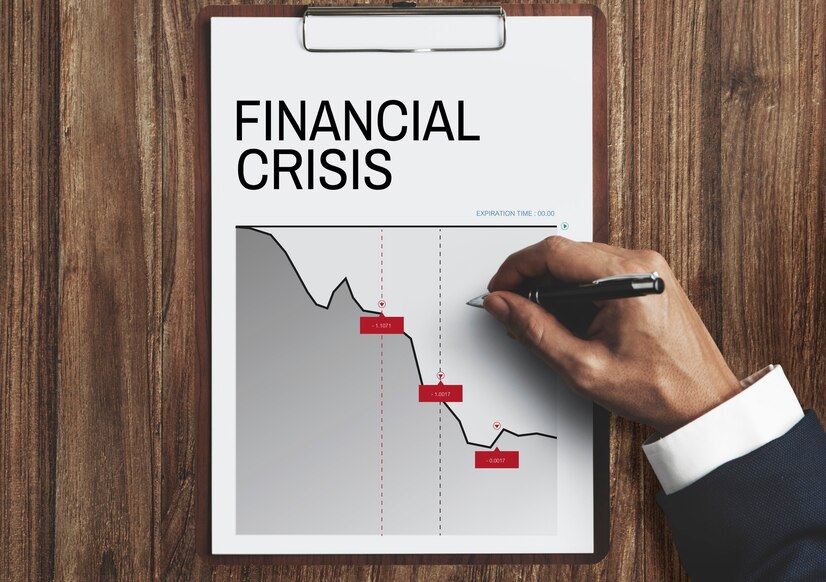In an unpredictable economic environment, preparing for a financial crisis is essential for safeguarding your financial future. Whether it’s a recession, job loss, or unexpected expenses, having a solid plan can help you weather the storm with confidence. This article outlines practical steps you can take to prepare for a financial crisis before it strikes.
Understanding Financial Crises

A financial crisis can occur due to various factors, including economic downturns, market volatility, or personal financial emergencies. These crises often lead to job losses, reduced income, and increased financial stress. By preparing in advance, you can mitigate the impact of such events on your finances and maintain stability.
Steps to Prepare for a Financial Crisis
- Build an Emergency Fund
One of the most crucial steps in preparing for a financial crisis is establishing an emergency fund. Aim to save three to six months’ worth of living expenses in a separate savings account. This fund will provide a financial cushion during difficult times and help cover essential costs like rent, groceries, and utilities. - Create a Detailed Budget
A well-structured budget helps you track your income and expenses, allowing you to identify areas where you can cut back. Regularly review your budget to ensure it reflects your current financial situation and adjust it as necessary. This practice will help you live within your means and increase your savings. - Pay Down Debt
Reducing high-interest debt should be a priority when preparing for a financial crisis. Focus on paying off credit card balances and loans to improve your financial stability. Consider strategies like the debt avalanche (paying off debts with the highest interest rates first) or the debt snowball (paying off smaller debts first) to accelerate your progress. - Diversify Your Income Streams
Relying solely on one source of income can be risky during uncertain times. Explore opportunities for side hustles or freelance work that align with your skills and interests. Diversifying your income can provide additional financial security if your primary source of income is disrupted. - Review Your Investments
Regularly assess your investment portfolio to ensure it aligns with your long-term goals and risk tolerance. During economic downturns, consider focusing on more stable investments that can withstand market fluctuations. Consulting with a financial advisor can help you make informed decisions about your investments. - Stay Informed About Economic Trends
Keep yourself updated on economic news and trends that may impact your finances. Understanding market conditions can help you make proactive decisions regarding spending, saving, and investing. - Develop Skills for Job Security
Investing in yourself by acquiring new skills or certifications can enhance your employability and job security. Consider taking online courses or attending workshops related to your field or exploring new areas of interest that could lead to additional income opportunities. - Create a Backup Plan
Having contingency plans in place can help reduce anxiety during uncertain times. Outline steps you would take if faced with job loss or significant expenses, such as reaching out to creditors for payment arrangements or exploring government assistance programs. - Network Regularly
Building professional relationships can open doors to new job opportunities or collaborations during challenging times. Attend networking events, connect with industry professionals on LinkedIn, and engage in community activities to expand your network. - Practice Mindful Spending
Adopt a frugal mindset by evaluating your spending habits and prioritizing needs over wants. Look for ways to cut unnecessary expenses without sacrificing quality of life—such as dining out less frequently or canceling unused subscriptions.
Conclusion
Preparing for a financial crisis requires proactive planning and disciplined financial management. By building an emergency fund, creating a detailed budget, reducing debt, diversifying income streams, and staying informed about economic trends, you can enhance your resilience against unforeseen challenges. Remember that preparation is key; taking these steps now will empower you to navigate difficult times with confidence and security.
Frequently Asked Questions (FAQs)
1. What is considered a financial crisis?
- A financial crisis refers to an event that leads to significant economic instability, such as a recession, job loss, or unexpected expenses that impact an individual’s ability to manage their finances.
2. How much should I save in my emergency fund?
- Aim to save three to six months’ worth of living expenses in your emergency fund; this amount provides a cushion during unexpected financial hardships.
3. What types of debts should I prioritize paying off?
- Focus on high-interest debts first (such as credit cards) as they accumulate interest quickly; also prioritize essential debts like mortgages or car loans.
4. Can side hustles really help during a financial crisis?
- Yes! Side hustles provide additional income streams that can help cover expenses if your primary source of income is disrupted.
5. How often should I review my budget?
- Regularly review your budget at least monthly; adjust it whenever there are significant changes in income or expenses.
6. What skills should I focus on developing?
- Consider skills relevant to your current job or those that align with potential new career opportunities; technical skills, digital marketing, project management, and communication skills are often highly valued.
7. How do I stay informed about economic trends?
- Follow reputable news sources, subscribe to finance-related newsletters, listen to podcasts focused on economics and personal finance, and engage in community discussions about local economic conditions.
8. What should I do if I fall behind on bills during a crisis?
- Contact creditors immediately to discuss payment arrangements; many companies offer hardship programs during difficult times.
